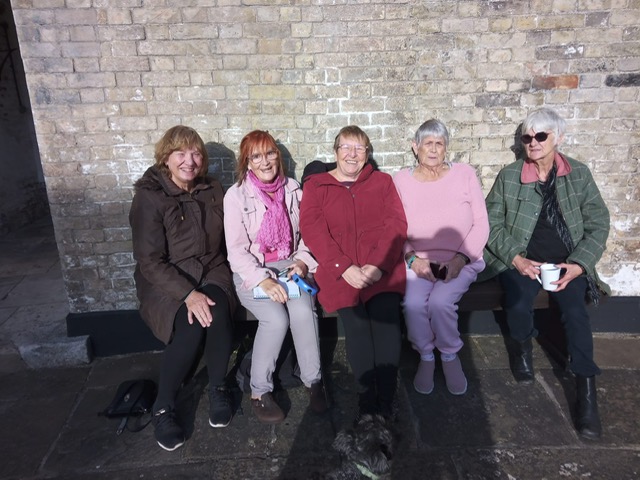During summer 2021 Essex Book Festival partnered with Explore Essex on The Story Hunters Project. A quest to get people of all ages out and about exploring the amazing heritage and green spaces on our doorstep.
Our intrepid adventurers were encouraged to visit one or more of 20 designated locations across Essex, and then transform that experience into a piece of original flash fiction.
An award ceremony took place at Cressing Temple Barns on 27th November to celebrate the winners of the flash fiction competition.
Photo Album of The Story Hunters Flash Fiction Competition Award Ceremony
Below are all of the entries to the flash fiction competition including the winners and runners up. Enjoy reading these unique and intriguing stories inspired by places throughout Essex.
Winner of Under 16’s
The Battle of Colchester Castle
By Eleanor Powell (aged 8)
Bushkin squirrel scrambled up the pine tree and stared at the castle tower. Munchkin squirrel climbed up too. ‘What a lovely night!’ said Munchkin excitedly. Wizard Dorrity came rustling through the trees until he got to Acorn Cottage and ender-pearled himself up the tree clutching his magical stick thing.
‘Hello, my dear friends,’ he said in a clear voice. ‘We are pleased to see you.’ Said Bushkin.
‘We are having trouble in the park.’ Said Wizard Dorrity. ‘What has happened?’ said Munchkin curiously. ‘The elephant has been attacked’, Wizard Doritty said seriously. ‘One of his horns is blunt, and his leg is bleeding. We do not know how he got hurt.’
The two squirrels and the wizard went to the Badger’s house. ‘Have you heard?’ whispered Mrs Badger. ‘There is a Monkey army in the park!’
Just then, a very Loud SPLAT sound could be heard. ‘What was that?’ asked Bushkin. ‘Sounds like nothing I’ve never heard of,’ sighed Mr Badger. ‘Have we got an army?’ Said wizard Doritty. ‘Yes, but there needing more people!’ squeaked a little badger. ‘What weapons do you need to join the army of Colchester Castle?’ questioned Munchkin. ‘I think a bow and arrow will do,’ said Wizard Dorrity. The two squirrels disappeared into the trees and came back again with a bow and arrow. ‘We’re going to join the army.’ Chorused the squirrels. ‘See you soon.’
Thwack! BOOM! Crash! OOOOWWWWWWWWWWEEEEEEEE! The Monkey army had lost. Colchester Castle had won.
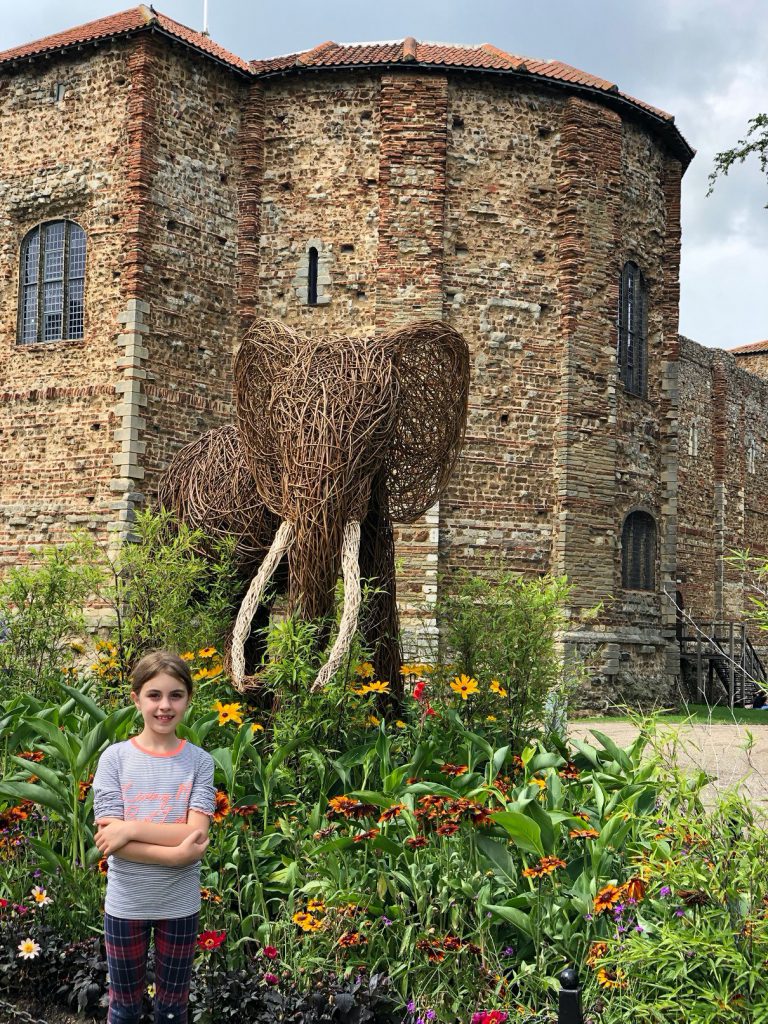
Winner of 16 and over
Stuck on you
By Alex Clare
We’d done the cinema and the pub lunch and faced the Third Date, the decider of whether the relationship’s going anywhere. Things had been, well, conventional but we’re all a bit wary now, aren’t we? Especially him, his first girlfriend since his wife died. And yes, ‘girlfriend’s’ ridiculous when I’m fifty-three.
Don’t get me wrong, nothing’s bad about him; he’s the opposite of my ex but maybe a little buttoned-up and thinks me frivolous.
To counter that, I invited him to a picnic in Castle Park with a visit to the Castle. Things started well when he arrived in shorts: he’d mentioned being a keen cyclist and it showed. As the afternoon warmed, the Castle’s cool inside was a relief until my little, ah, accident. A display encouraged trying on chainmail or a helmet. While he fingered the armour, I popped the helmet on, pushing down so it sat right. He said it suited me but I couldn’t see because my hair had flattened over my eyes. The metal formed a lock around my skull and refused to move. Tugging the chain to the display just made me dizzy.
I heard laughter, great rolls of laughter. Then something touched the back of my legs and he guided me to sit down. After an uncomfortable but mercifully short tussle, I was free. I thought I’d blown everything but when he finally stopped laughing, he said I’d need a drink and could he take me to dinner? I think he’s a keeper.
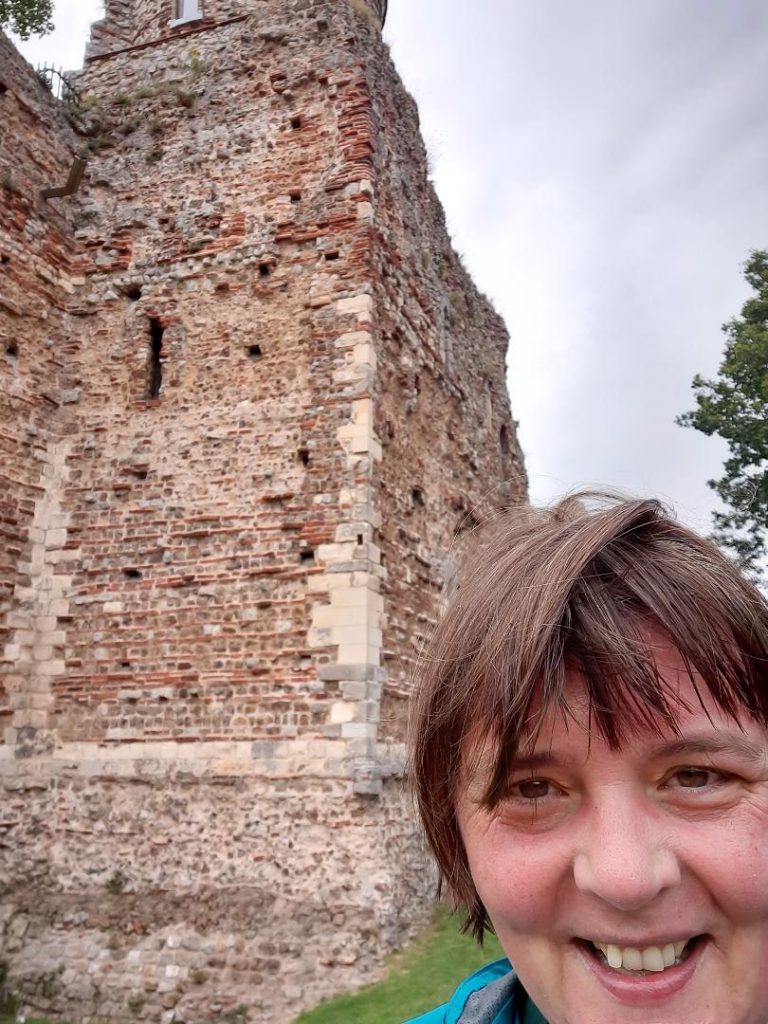
Runner up
War Remains
By Jimmy Webb
If Lilly was six inches taller, she could reach the root near the top of the hole and haul herself out. She shouts, making her throat hoarse. She listens. Faint sounds: old-fashioned music, laughter of men playing cards.
If Lilly ever gets out, Mam’ll tan her backside, and give her chores. She’ll watch, will Mam, her black long curls hanging over her right eye. Her left glaring enough for both. ‘Don’t ever play at that old gunnery again, d’ya hear?’
If Lilly was a soldier, she’d be a good one. She’d lead others, and wear medals with pride. For now, she sits scrunched, contemplating crying. After all, nobody can see. Until a man looms over the hole; middleaged, weary-eyed.
‘Here, take my hand.’
Lilly swipes it away.
‘Mam says weirdos come here.’ ‘I’m Stan. I’m not weird, I promise.’ ‘You’re wearing grandad clothes.’ ‘I’ll have you know this is fine attire. D’ya want out or not?’
If Lilly takes the weirdo’s hand, she might get bundled into a car and never see Mam again. But she’d kick him in the balls, and retreat. She’s fast enough.
‘Fine.’
Stan pulls her out. She’s poised, but Stan studies her.
‘You’re the double of my granddaughter. You even have the same long black curls, and temperament.’ ‘I bet she thinks you’re weird as well.’ Lilly sprints away. ‘Bye, you old grandad.’
If Lilly hadn’t heard the music again, she wouldn’t have looked back, calmed, seen no weirdos.
Speechless, she sees only war remains.
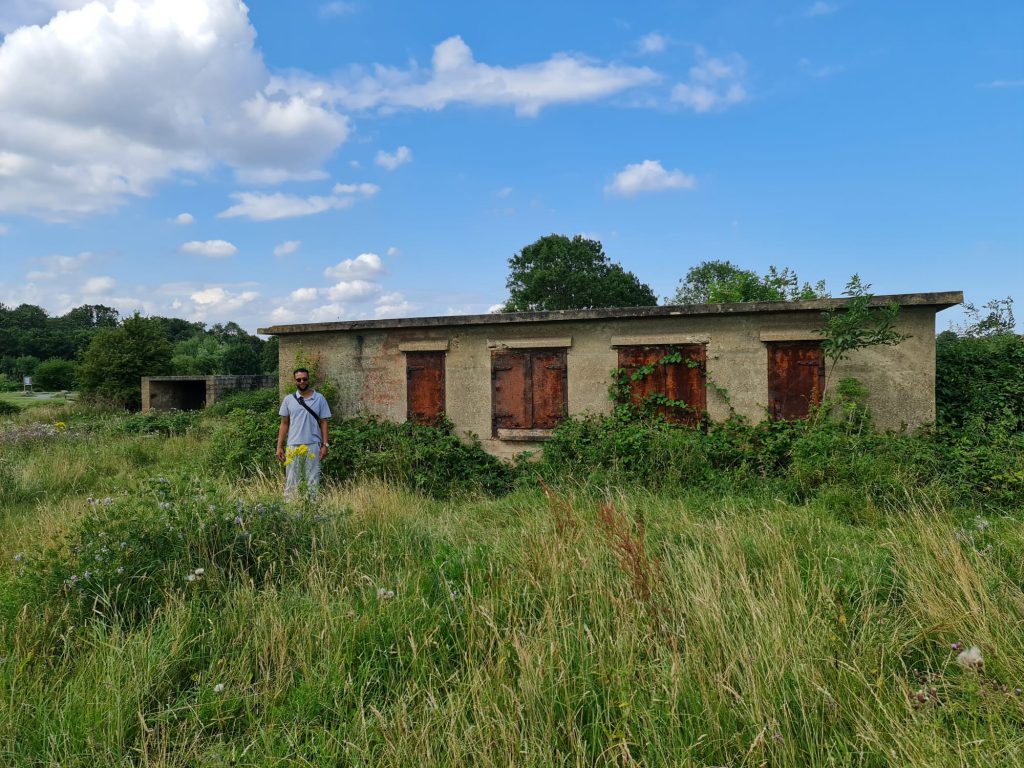
Runner up
Beeleigh Steam Mill
By Doreen Levy
Sunday afternoon and I am promenading with a man at my parents suggestion.
There are many others on this sunny day at Beeleigh but I would prefer to be at home with my cats. As we walk my skirt brushes the grass and the nettles. The man’s hand brushes mine, much to my discomfort.
We walk to where the river joins the canal to watch the wild water then continue to the long ruined and burnt mill to observe the ducks and swans swimming. It is quieter and cooler here. No other people around. Birds swoop from the high eaves behind me, the movement catches my eye and as I turn nudge my companion.
I turn back and stand, a solitary figure, looking down at the deep water where lighters that transported the milled flour to Maldon once floated. The swans and ducks have flown and my companion is no longer there, nothing but a dark shadow in the water. Smiling, I wait for some minutes before retracing my steps. Alone, I return home to Mama and Papa’s tedious questioning.
When they suggest yet another walk with yet another escort it may be necessary to nudge another into the deep water to be washed away on the high tide.
Mama and Papa do not have the determination that I possess. I shall ensure that I spend my Sundays alone, in my own garden, in my own home with my beloved cats.
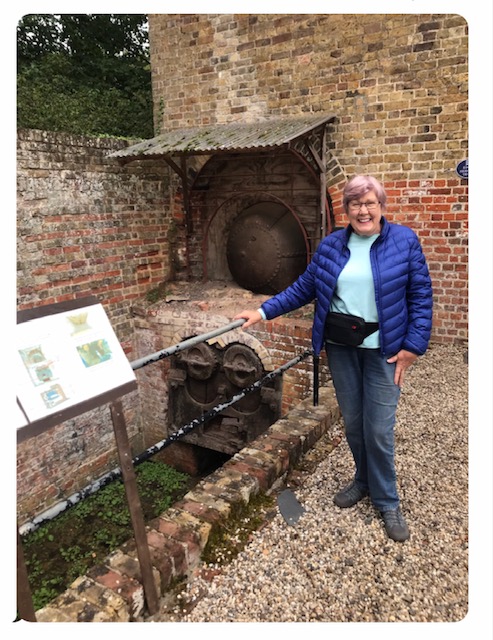
Runner up
Call and Response
By Helen Chambers
‘You worthless Conchie cowards,’ yells the Sergeant. ‘You duds’ll wish you were dead.’ Swifts scream overhead, scimitar wings flickering, and I watch over his shoulder.
‘What you staring at, bird-brain?’ he shouts, and sends me to solitary for insubordination. Water trickles down the wall of the punishment cell. It’s too dark to read, too cold to sleep.
Later, when I’m digging latrines, he asks about the swifts. ‘Devil-birds,’ he says.
I explain: annual migration from Africa, eating, sleeping, life on the wing. He listens, stares up. ‘You’re a square peg in a round hole, alright.’
It’s the Army who drill, turn right-angles, judge everything right or wrong. They miss the dizzying beauty of this circular fort. They even shaved off the arcs to form regimented rooms.
Hiding in a cut-off curve, I’m deep in my book when I hear my name.
‘Sergeant’s brought you a casualty.’
It’s a fledgling swift, glossy brown and black, white-flecked, grounded on its first flight.
‘Take it up high, let it fly over the top,’ I say.
‘Permission granted.’
I cradle the frantic bird, stroke its long, crossed wings, see terror in its deep-set eyes. Placing it on the highest parapet, we wait.
The flock call to it from overhead.
It blinks, shuffles forwards, flexes its wings. Nose-diving, it beats rapidly then soars, banking round, spiralling up to the others, wheeling and chasing together.
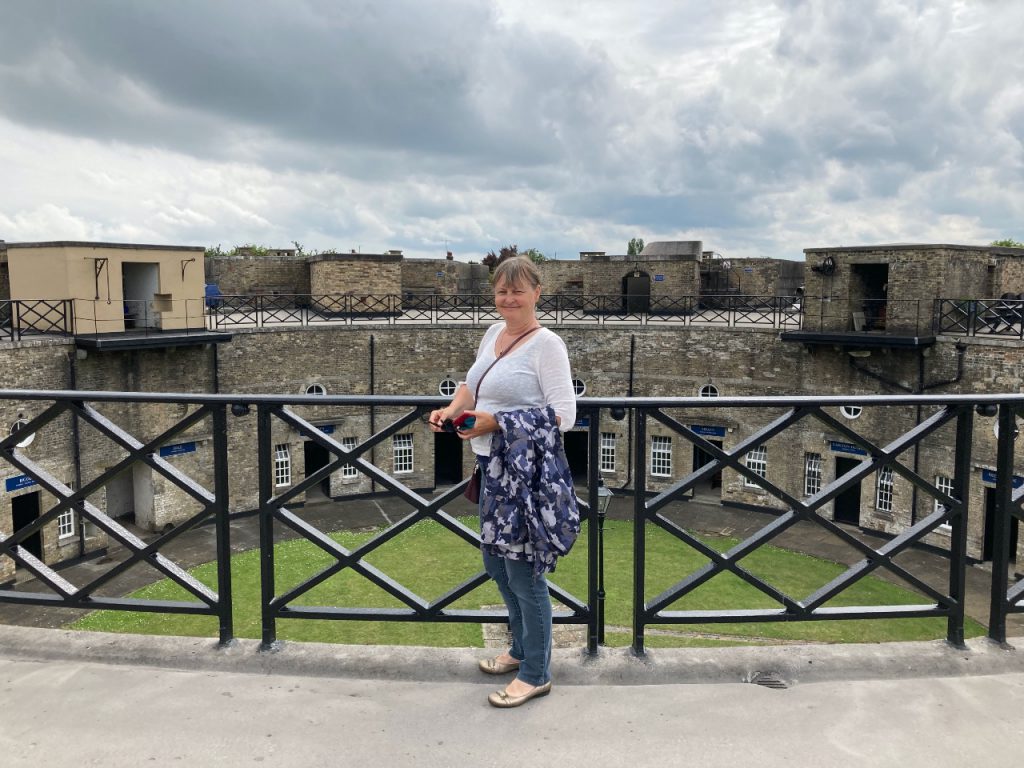
A Perfect Hostess
By Morna Clements
Fragrant with roses, wearing summer florals and hatted in glorious leaf-green, our hospitable keeper of history prepares for her visitors. Soon, little children pulse along vein-like paths to the playground; friends meet, beside the ramparts, effervescing with chat. On the footbridge, a man twirls his partner, pulling her into an embrace. Their laughter rises, lark-like, to the turrets.
In the sunshine, our celebrated hostess relaxes: her contented sigh a welcome breeze for an older gentleman, with a packed lunch, who settles down to hear the band.
But clouds gather when a lager-swigging group spill through the gates. They chuck their empty cans onto her newly-mown grass, and trample her carefully arranged flowers before plonking themselves next to the picnicking gent: ‘Give a sarnie, old man.’
Umm, time to intervene. What would Claudius do? she muses, or better still, Boudicca. Nearby, some red begonias are being irrigated. It doesn’t tax her much; a little charming of the water pressure, and the hose lifts its cobra head. Whoosh.
‘What the …?’ They leap up, arms flapping against the saturating strike and, swearing loudly, head towards the café where people are quietly enjoying rather gentler refreshments.
‘I know, let me show you around my wildlife garden.’ She extends a creeper.
‘Argh,’ the gang leader falls, humpty-like, among the nettles and thorns, ‘let’s split.’
The hostess rounds her lips. An efficient puff propels them out through the Castle gates. ‘Oh dear, leaving already?’ She smiles through her goodbye kiss.
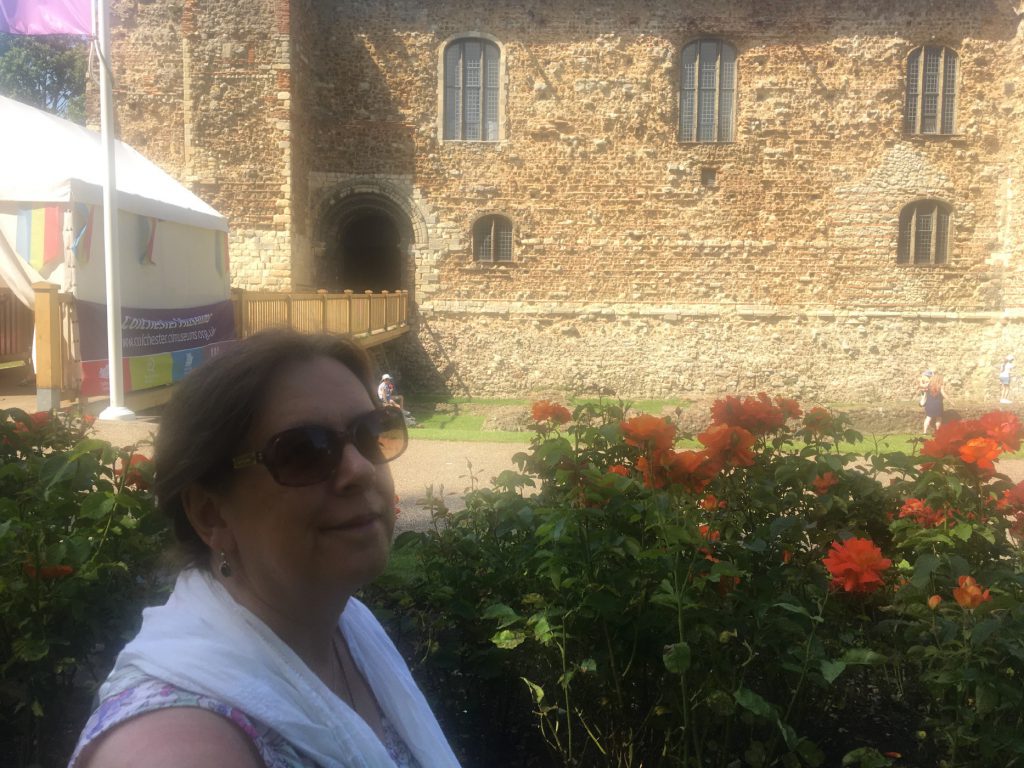
St Peter’s
By Clover Colquhoun
The door wouldn’t open. Look it up next time, she admonished him with quiet rage before the usual sinking guilt. Bank holiday. Closed.
Desperate for meaning, a late night google and an hour’s drive brought them here.
Adjacent to the locked Saxon church, they perched in a shelter – a cross between bus stop and stable. On the wall a Mary statue almost glistened in blue, white and gold. Sand, salt, sun, frost it seemed to chant. Help me, she pleaded in agnostic silence. Please.
Following the path by the sea through its last stages of green, they stopped to watch a family drawing snails in the sand. He picked her an apple and its surprisingly mellow juice soothed.
But, noticing the nuclear power station, with a jolt she heard sirens in the wind. I’m hungry and it’s two, her tone shifted gear. They looped back to the church. She stroked its rough wall pressing into some sharpness as they reached the end. Try again, he suggested. They walked once more to the door. We’re always open, she now noticed the sign. A twist and a shove and they were in. Accessible the whole time.
The high ceiling and pale stones, not for the first time, held and carried.
In the car she went to upload a picture of the statue to Instagram. She scrolled through her camera roll – googled the shelter. No trace of its existence could be found. Knowing somehow not to search further, they drove home.
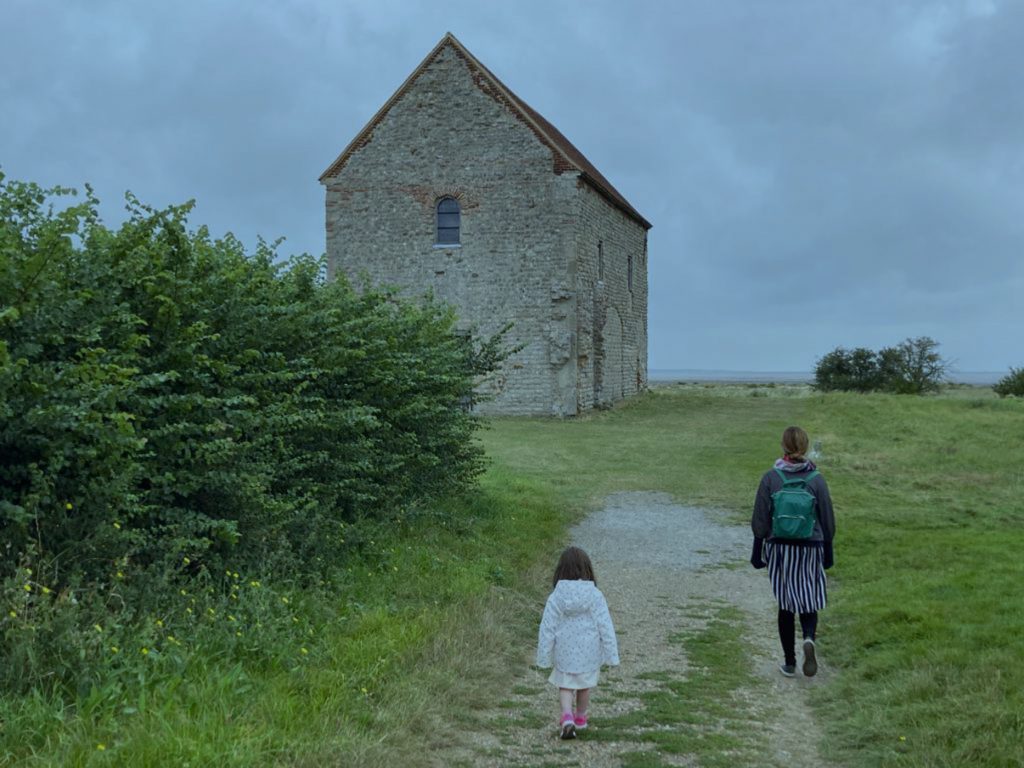
So economical
By Clover Colquhoun
Batting away an arm of buddleia, she collapsed onto the bench. Her favourite, for the view of the prized tree that had laboured avocado like figs since the eighteen-thirties. A Mediterranean squint. Taking out a cigarette, she heavily exhaled.
The walk here had taken her past several fading posters – go electric, so economical. If the past two years were to be tag-lined, that would be it. They’d relocated when she had gotten pregnant – Wilf and just behind, Eddie. Mouths now sweetly agape in heavy sleep, shaded under the huge hood of the pram.
On the day they moved into the flat it had been in the kitchen, a navy royal and be- bowed. Your carriage awaits, Jim had joked.
The flat, so convenient. Economical. A short walk to the library, shorter walk for bread, the chemist, mother and baby clinic. A pretty pond, square – everything squared.
But in the squares was light sorrow. Like the infamous African well that should have lessened a woman’s toil but instead restricted freedom, the planners should have listened to the wives, the mothers, the grandmothers. Many needed somewhere far to go.
She stretched out her hands, examining her fingers – the incongruous looking ring. She knew she had good hands. Someone had asked to take a picture of them once in the British Museum.
She’d loved all the museums and it’s maybe why she liked this place, it had history, roots.
Looking up, there he was. As arranged. Ready with the papers.
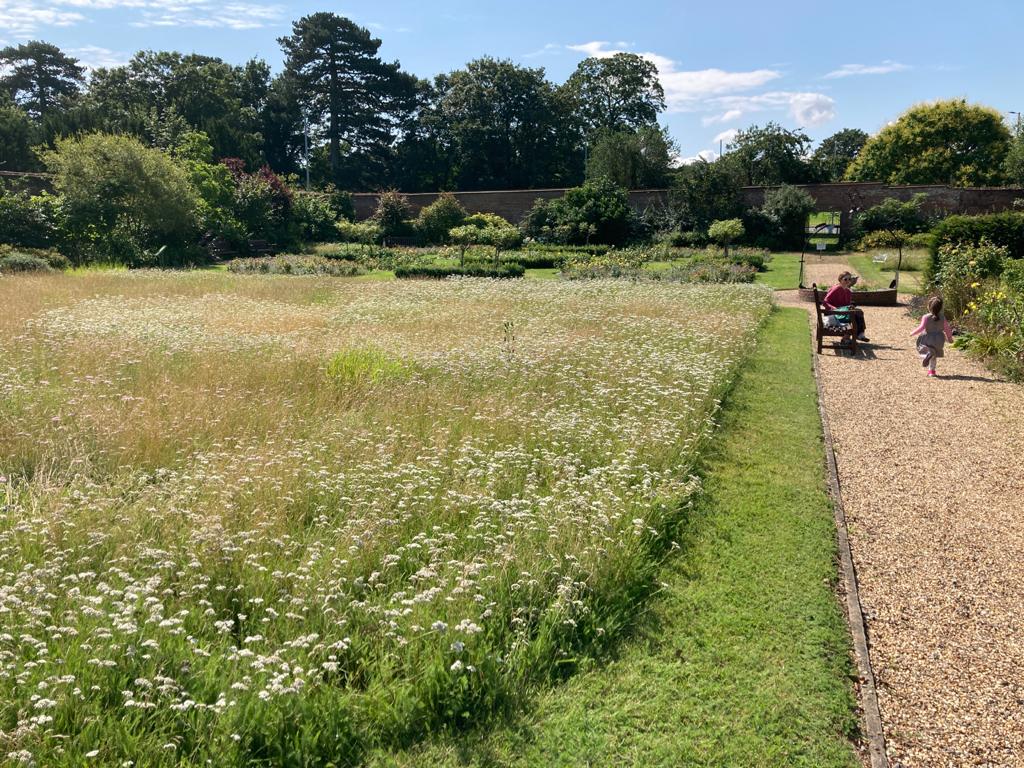
St. Peter’s on the Wall, Bradwell
By Doreen Levy
I was a boy, perhaps eight years and worked for the master carpenter when this church was built. He was a cruel man who worked me hard, fed me little and beat me often. The cold wind from the sea froze my bones, I never had a cloak to keep me warm.
The stone masons were good men and gave me bread if I dragged a few stones from the old fort to the church.
One icy winter a cough racked my body. I shivered so sheltered from the cold wind behind a mound of stones where I could hear my master calling me. He found me and gave me such a beating then left me where I lay.
The next morning the masons returned and found my body. One man wrapped me in a warm cloak. They neither knew my name nor where I came from so they called for a priest from Southminster who said prayers for the dead and I was buried by the south wall.
I am just an unknown boy who lays in the rich earth. In the past farmers drove their carts to begrudgingly deliver the church’s grain. Many people step on my grave as they walk around this holy place. They use words unlike the ones I spoke but I hear the words ‘old and peaceful’.
Only I know the long and true history of this place.
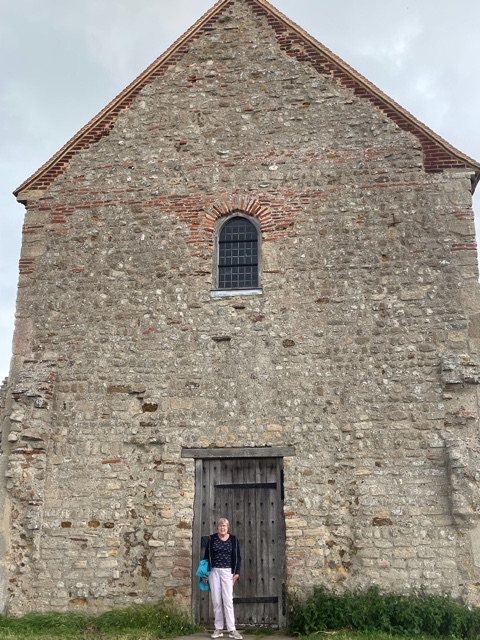
People in the park
By Hannah Powell
The huge wooden doors closed. Samira’s smile fell from her face, and she sighed as she removed her lanyard and slowly made her way to the Castle staffroom. Her lipstick and black eye liner were immaculately re-applied and belongings placed in her pink leather handbag one by one. The others rushed out, leaving cheery goodbyes behind them. Finding her there as he was locking up the supervisor chuckled, “What’s wrong? Don’t you want to go home?”. Samira gave him a weak grin in return. Unseen, her stomach tightened and flipped, and her heart beat faster as she was reluctantly shooed out.
She blinked in the balmy evening sunshine, her eyes falling on blissful couples walking hand in hand through the park. Feet dragging behind and mind racing ahead, she took the long route towards the flat. Perching on a blue mosaic bench and brushing fingers through fragrant lavender, a familiar figure caught her eye. He sported wild dreadlocks, wore grubby, threadbare clothes and repeatedly sipped from a can of strong, cheap cider. They looked at each other and held their gaze. Comfortable in their silence, they each understood that this was a safe place for both of them, the only place they wanted to be for now.
The peace was broken by Samira’s phone beeping. A text message. She looked at it quickly and winced. It was time to go.
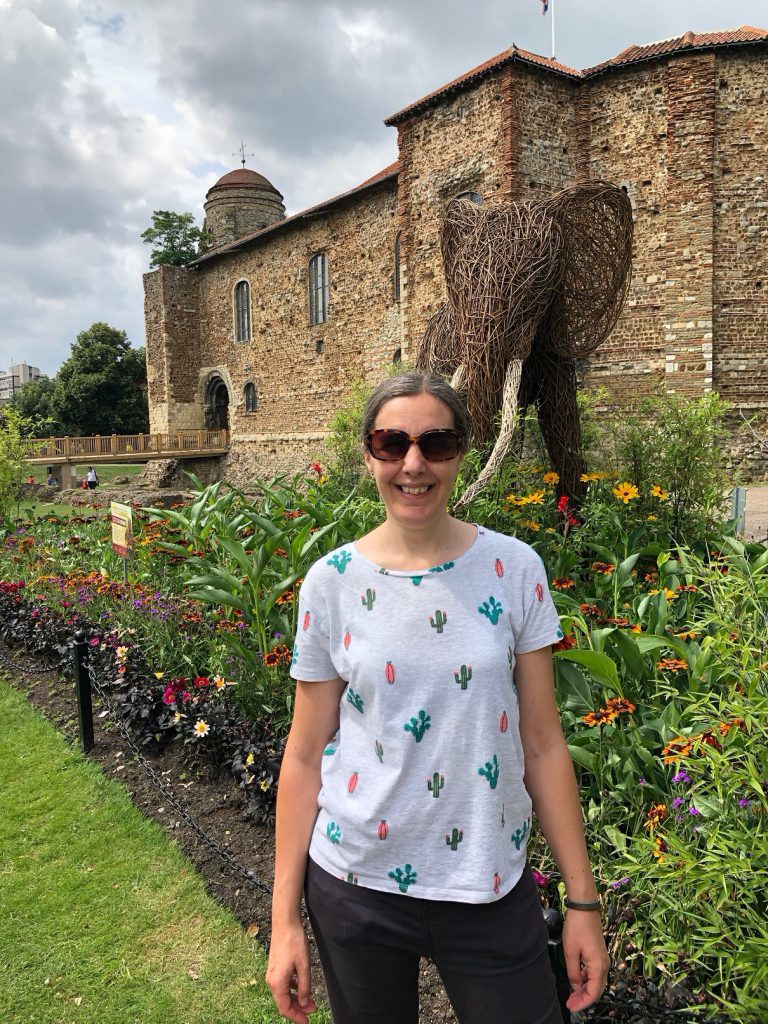
Roman Circus Centre
By Jan Scott
Where buttercups and poppies are now scattered in the grass. Where robins sing atop the ruins of the starting gates, the Centre’s cut-out charioteers with rearing steeds, silhouette what went before. When the roaring supporters of the four factions could be heard as far as Balkerne Gate. When charioteers burst through those starting gates, all muscle and sinew, the strength of lions: leather bound to teams of four, fiery equines.
As chariots hurtled down the track, maybe in the stands, at the place where now outlined spectators peer, a young teenage girl watched her charioteer hero. Her heart leapt as he steered skidding horses round the crash causing turns. Her mother sitting with her shouted, ‘He’s becoming very rich,’ above the screaming crowds, as a sparkling rain of silver coins cascaded onto the girl’s hero as he strutted his victory lap, over the now tarmacked road. Her mother was hopeful. ‘He may take a shine to you! It’s time you were married!’
Now where the Sergeants’ Mess building rests, maybe the girl saw her hero after the race, wiping dust from his youthful body, his dark eyes met hers and she blushed. As he kissed her hand, a centurion shouted, ‘Don’t touch him, he’s a slave!’ As the thwarted mother and daughter walked back to the colonia, the town, maybe the girl looked back, and saw him saddened and he saw the tears in her eyes. The charioteer and the Camulodunum girl. Both were the conquered.
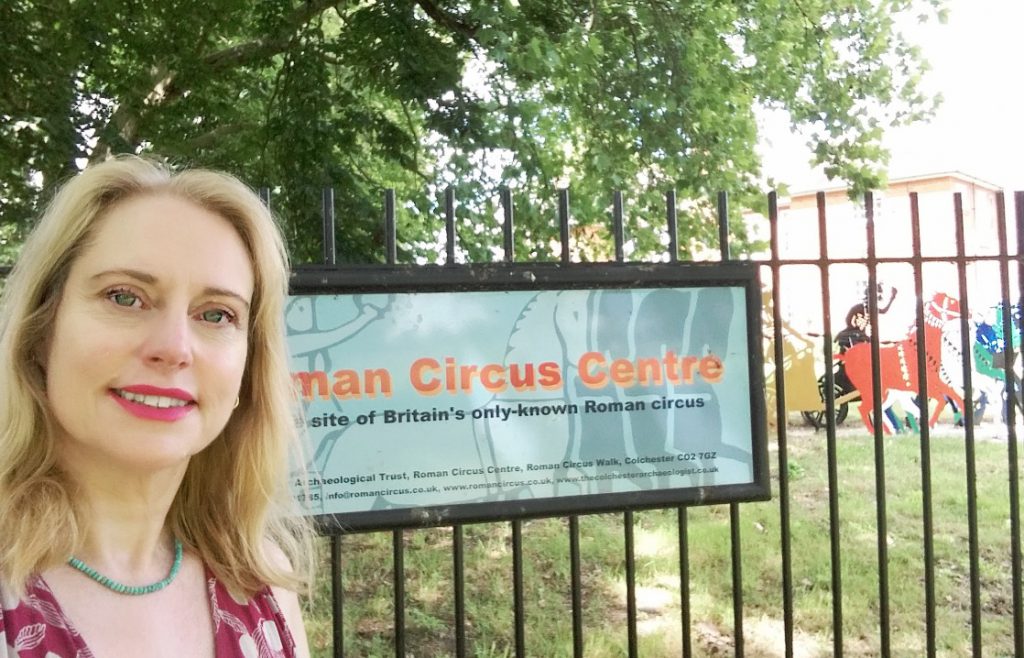
Remembered In Bronze
By Julie Bissell
The man was sitting on the low wall around the fountain, leaning over to touch one of the leafy faces that spouted water into the star-shaped pool. The young girl holding her hand in the flowing water was watching the man, obviously working out whether she could get away with flicking water at him.
I felt I should warn them that I was nearby.
“I love those faces,” I said.
The man turned and smiled.
“The sculptor that made them used his nephews and nieces as models. He asked them to spit out water as far as they could to get the expressions right.” He laid his palm on the jade-green face. “This one was my daughter’s favourite.”
The girl cupped both hands in the stream of water, gathering ammunition for a water war and grinning at her father.
“She died,” the man said. “Last year. Leukaemia.”
“I’m sorry,” I said.
A breeze clattered the roses, scattering petals and scent around us.
“I miss her,” the man said. “But seeing this little sprite – it’s like she’s still here with me.”
He patted the bronze face once more before standing up and walking away, leaving me alone with the sound of chuckling water.
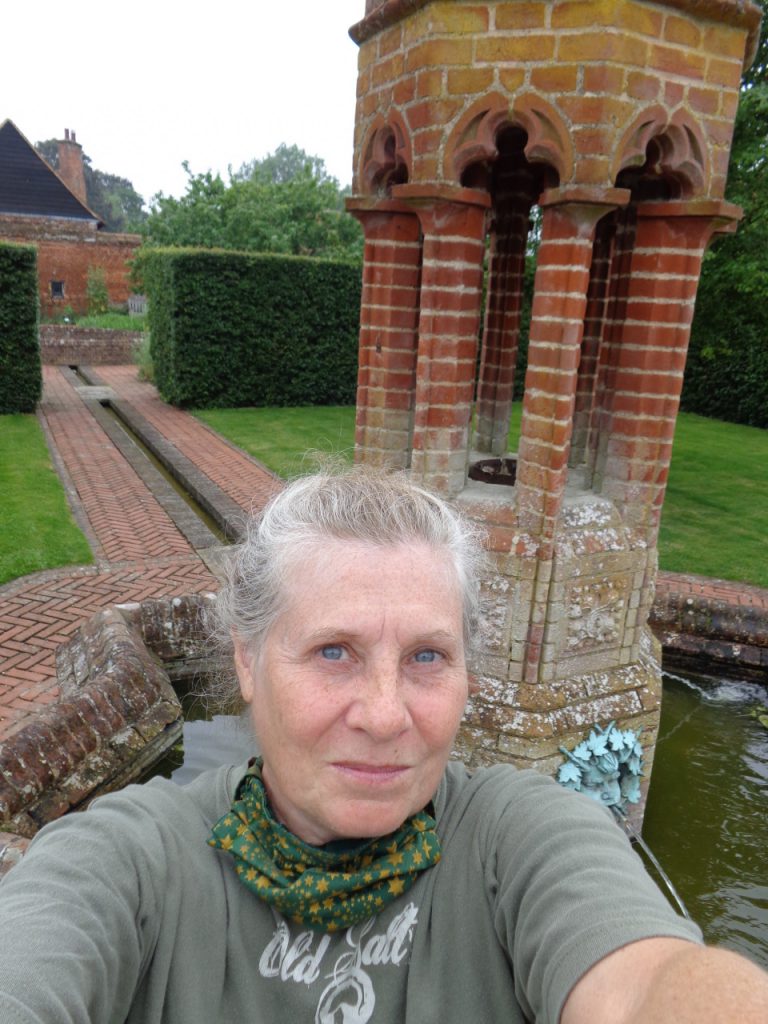
Redoubt Fort
By June Collins
“Cup of tea Bert” “thanks love, where’s the biscuits “ “I’ll get them in a minute, Bert” “how’s the work on the walls going” “yeah we should be done with it all by early next week, hopefully“ speaking from a tea lady’s perspective the volunteers doing the work on theRedoubt Fort restoration are doing a brilliant job it’s coming along in leaps and bounds. They have cleared all the rubble and started making good on the walls. There’s a guy coming in to sort out the windows starting next week. All well and good should be finished now in a matter of months. Well done boys!!!!
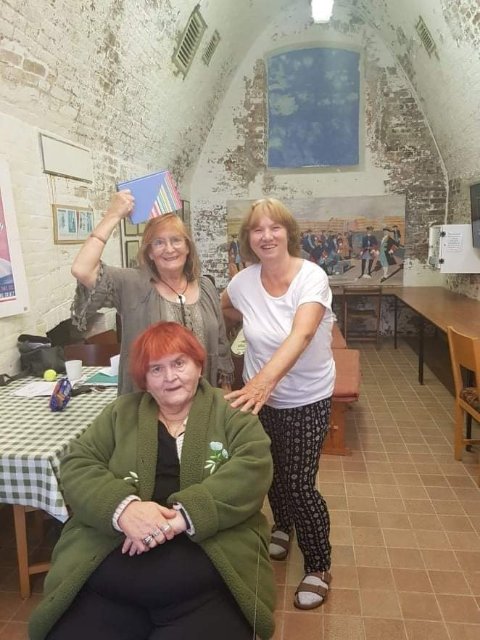
Kinder Transport
By June Collins
“It’s freezing, I’m feel frozen to the bone” “Stop moaning, Gloria, think how lucky we are to be here, it may be cold but we will be going to the dining room to get food with all the other’s, come on let’s go” So Gloria got up and rushed out of the chalet and bumping into the other children who were all hurrying up the path to the dining room. As they entered the dining room they could smell the food which smelt different to what they would normally have smelt like. The food looked and tasted different as well but they were all so hungry and cold that it didn’t really matter. If they got some food inside them they may start to feel a bit warmer. Also it was much warmer inside the dining hall. There was lots of noise as all the children seemed to be talking all at once and Gloria could not quite understand what her friend, Nessa was saying so she decided she would just eat instead and maybe the children would quite down once they were eating. Gloria had toast with jam and a cup of tea then some scrambled egg and beans, the beans she had never had like this but she was so hungry it didn’t matter much she laughed to herself.
After the meal was finished the children were all taken into another large hall where the people helping them arranged for games to start. There was a large skipping rope in one corner where you could skip with others and two of the helpers were at each end turning the rope. There was a net at one end of the hall where you could throw a ball into the net. It was all great fun and we were all feeling a lot warmer. At the end of the morning a lady who appeared to be in charge explained that she was really sorry the chalets were so cold to sleep in but this was the only place where they could accommodate so many children and there would be hot water bottles supplied for tonight and would we all like to now go back into the dining room as lunch will be serving shortly. Oh Nessa said to Gloria “how wonder more food”!!!!! The girls were so grateful to be here and scurried to the dining hall where they had food again that they had never tried before but enjoyed it all the same. There were potatoes, carrots, and a vegetable they didn’t know the name of but found out later it was called swede and meat called corned beef. It all tasted fine even though it was different. Who cares we are here and we are safe and everyone is having a lovely time and I just don’t want to think about anything else. In the afternoon there were more games to play and all the children were happy and laughing and it felt good to be alive.
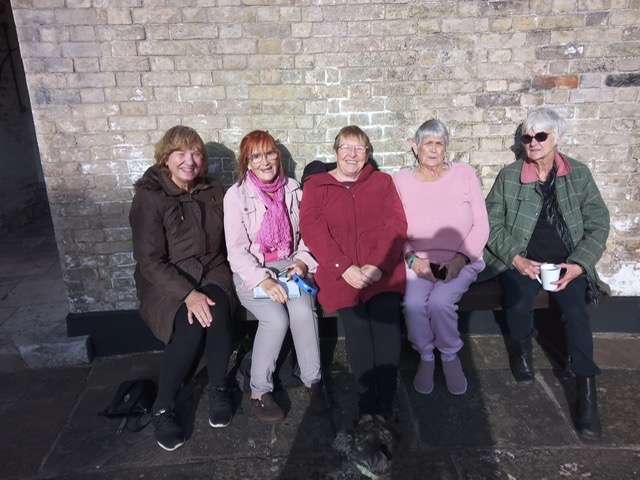
Homecoming
By Karen Lawrence
This 150 word story was inspired by my visit to St Peter’s on the Wall Chapel at Bradwell-on-Sea in July 2021. While researching the history of the Chapel, I came across the story of Saint Cedd who founded a monastery here at Bradwell in around 660AD in the Celtic Christian tradition. The Chapel was built from the stones of the ancient Roman fort of Othona.
While visiting another of his monasteries at Lastingham, Yorkshire, Cedd caught the plague and died. Twenty-nine of his fellow monks died with him, leaving only one young boy to return to Bradwell-on-Sea. My story imaginatively connects this boy’s lonely journey with my own visit to Bradwell and the Chapel.
It is a long journey for a plague year.
Fearful villagers lock their doors against him
so the boy walks the lonely coastline
hefting his knapsack of sorrow
home to Othona’s ruins.
Barefoot across a beach of broken shelldust,
skirting the bleached skull of a seal,
he watches the swallows dance and dip,
over samphire and sea lavender
in the salt-washed sky.
Father Cedd loved the empty places
haunted by water and the screams of gulls
finding solace here for the wild soul.
At last it appears, tall on the wide marshes,
a sturdy barn of a place, a holy cowshed,
shelter from the sting of the wind and sun.
Soon he must find the Abbot and share his burden:
Our father and thirty brothers dead of the pestilence.
But first he will stumble inside
and sit still a while
in silence
safe in the cool embrace of old stones.
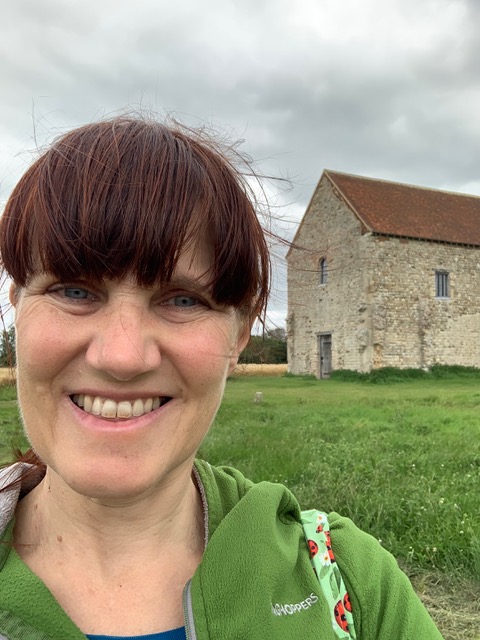
The Club
By Lesley Baker
The club was in full flow below as Elsie continued to climb up the stairs of the tower. She stood on the roof, between ‘gentlemen.’ leaving the claustrophobic rooms below. The moon illustrated a section of the sea, a silky illumination. The silence was punctuated by the quiet, humming of the water; the Martello Tower being close enough to hear it. Elsie breathed it in deeply. She could not see the horizon but knew it was there. A place where sky met sea, escaping the boundaries of the known. This is the place Elsie thought about when with her ‘gentlemen,’ so as to escape the margins of her body, to bleed out of it. The slate black vastness strengthened her. She wondered about
her mother back in London and whether the money she sent purchased her mother some comfort.
Downstairs she heard the cry. “Smithy, oh my God what’s happened?” and knew the clattering of shoes would emerge up the winding stairs. She did not hesitate and as the angry shouts came closer she smiled and pitched forwards.
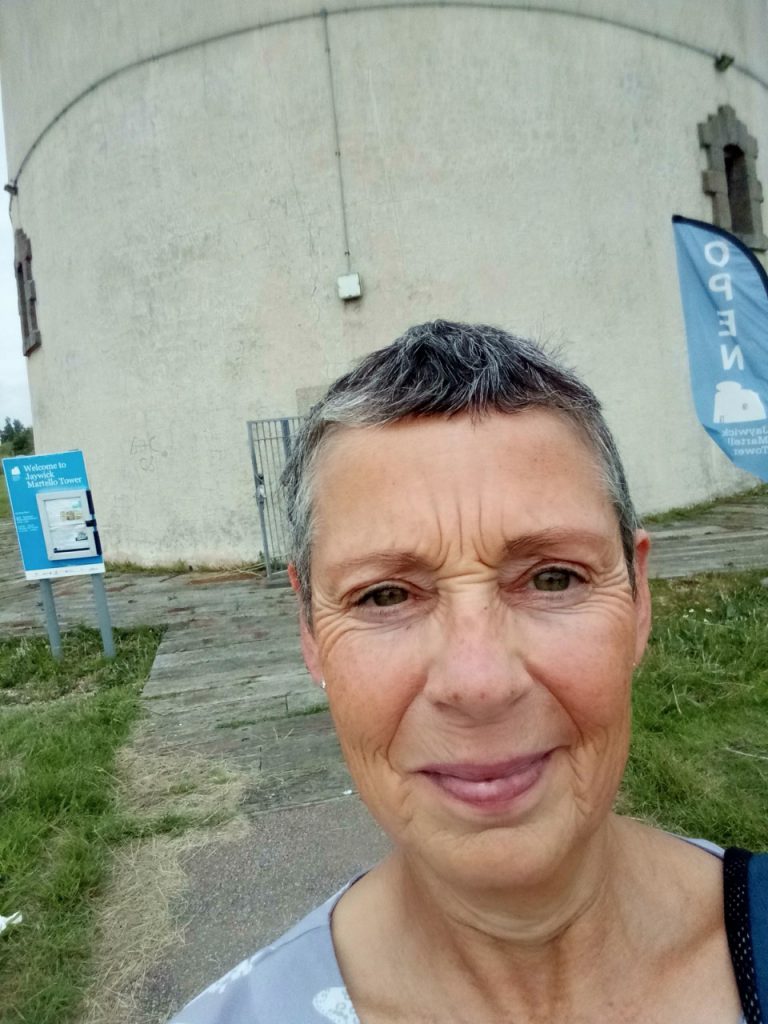
Who wants to be a milliner?
By Lizzie Squire
Haunting organ music being played in the background does not help the heart felt feeling being disguised …
A picture of the dear Kinder children, so sweetly put together in the rooms at Redoubt as yet undiscovered by me, now, with my hand on my chest I scurry out …
I had originally gone into this room because I saw the little models of children with old fashioned clothes on, very similar to the ones I used to wear at school…
Yes,, I had been touched by their stories, now being shared by their grown up selves.
We as the Inkling Writing group all made less laughter as we read the information boards with photos … I came out of the dark damp room into the sunshine in more ways than one,
I patted my heart…
I rallied and became pleased to reflect on the fact I had at long last returned to millinery and was at least, able to donate my little 1940’s hat for the little girls model.
Who wants to be a milliner? I do! I didn’t! But I do now! So here I am writing a story under my Who wants to be a Milliner umbrella——
Hopefully Inklings is just beginning, all just because I went to Essex Book Festival Danbury Story Finders…. Indeed many unearthed…
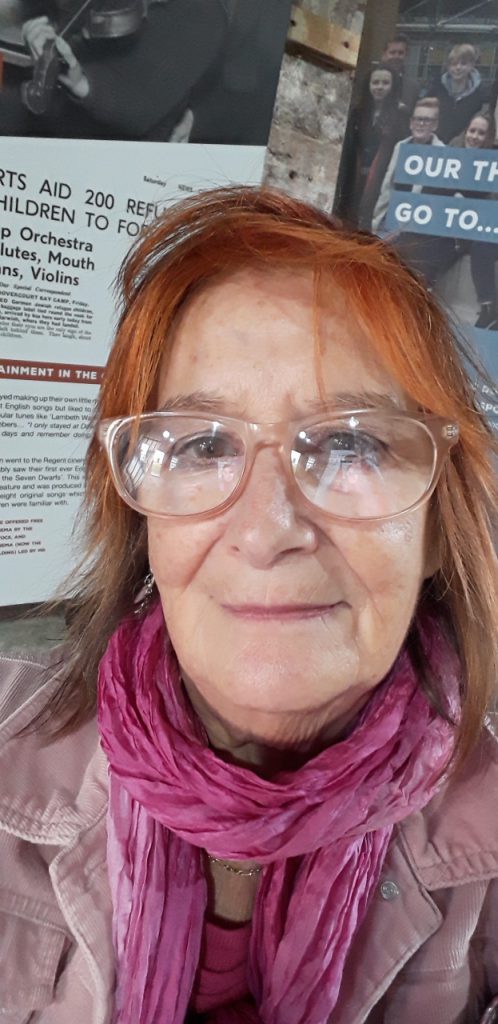
One Moment Too Many
By W.P. Herbert
Malcolm craved that ‘perfect’ shot: just one would be nice: then he’d be happy. Julie, his girlfriend, was less pleased, especially with the attention he gave to his hobby and not to her. He knew he had to resolve the situation, but it was all too easy to get lost in the hunt for that singularly elusive moment.
So he took her to where the salt-spray hung on the breeze, where trees waved gently from low-lying cliffs and the River Colne’s waves rippled against the sandy shore – Cudmore Grove. As the sun dipped in the sky, it bathed the beach in cool shadows.
All day he attended to Julie’s every need and so, at last, she relented.
“One picture! No more, mind!” she smiled.
He had to work quickly: in his experience, such sights never lasted long.
Julie watched, as she had before, but there was a difference: he’d pointed the lens straight at her. She was his entire focus – the scenery, the setting meant nothing to him now. Even the interaction of light and shade played a poor second-fiddle.
He held his breath in wrapt anticipation until the aperture snapped shut, and he’d inspected the final image.
Not a hair was out of place!
“Perfection!” he breathed.
Eager to prove the result of his devotion to his lady love, he beamed proudly back at her to find … she was gone.
He cursed the precious moment he’d spent …
… the one he should have spent with her …
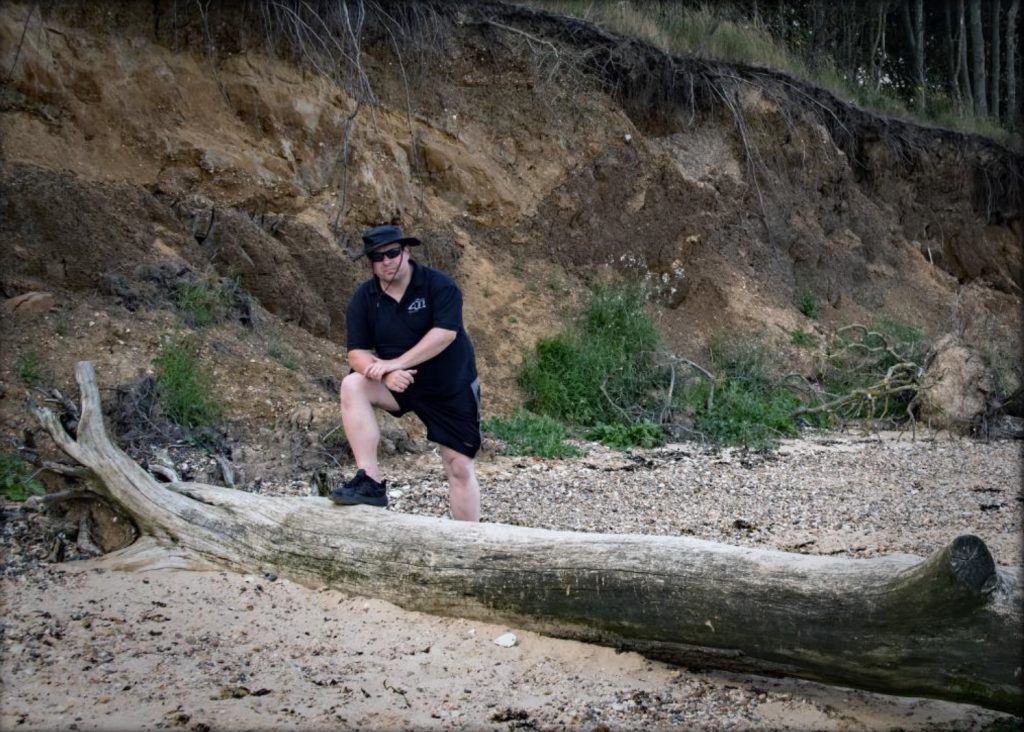
Danbury, Sunday
By Malcolm Brown
A lined notebook falls
Open in the day’s greenness
It begins to fill
He’d stopped by a fallen tree. The sun pierced the scene through a dark cloud bank. Somehow pieces of gravel had found their way into his boot. Their presence had begun to annoy him, cause him discomfort and were distracting him.
He removed his boot and sock. Shook the sock and upended his boot. Pieces of gravel struck the fallen tree, on which he sat. The tree laid near its footprint – wrinkled, gnarled, and pitted like a dinosauric relic. Its surface reminded him of his grandfather’s face.
A girl speed talking in a foreign tongue on an invisible phone – possibly to someone in a far off amber or red country. He followed the panoramic vista created within the park by the verdant canopy of gently swaying foliage. Enriched by a soundtrack of birdsong which mixed strangely with the alien conversation.
A plethora of greens, delicate leaf shapes and movement were all competing for his attention. Today this was a green land – peopled by picnicking families and dog walkers. He was an interloper in their Sunday world.
The girl rose still speed talking to the atmosphere. He replaced his sock and boot. He suspected there were many on the planet who, at this time, had small pieces of gravel lodged somewhere that needed removing.
The pages now filled
Flap listlessly in the green
Tomorrow a story
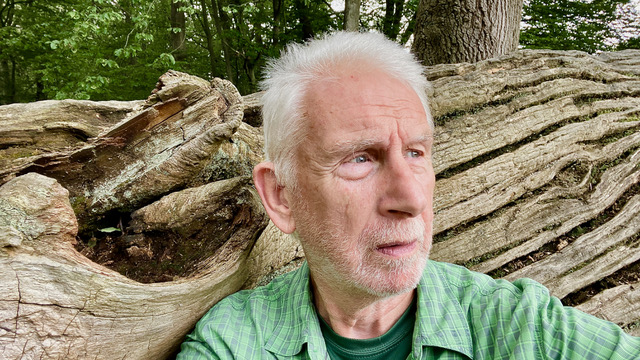
1.15 miles from Land
By Malcolm Brown
I meet Earnest Turner at the pier end. It is the ninetieth anniversary of his arrival on the pier—he craves company. In the morning sunshine, between and around us, visitors dash excitedly—like the bustling turnstones on the under pier. We talk about the weather, and he suggests tea in the grand new café—where he reveals to me his story.
He tells me he still dreams of his team of horses—their ironclad, feathered feet, their steaming breath, and the music of their harnesses – nothing else for him remains.
The others on the pier today—survey the patinated mudflats, splattered with tilting fishing smacks and wheeling, squawking gulls—they buy fishing lines—eat ice-cream and candyfloss. Earnest spins me tales of his ninety year
confinement on the pier.
He asks me why the pier had recently fallen silent but now had grown noisy again, I tell him. He says he will add this to his tales of the pier. He thanks me for my company as he melts away.
That day in June on the sunlight pier, far from land—he was more real to me than all the bustling summer throng.
Earnest Turner 1893 – 27 June 1931
Earnest Turner arrived on Southend Pier—from a boat down the Thames from London. It was an Ansell’s Brewery workers outing – Earnest was a drayman. He fell beneath the electric tram heading up the pier to the land.
No plaque—Just a presence.
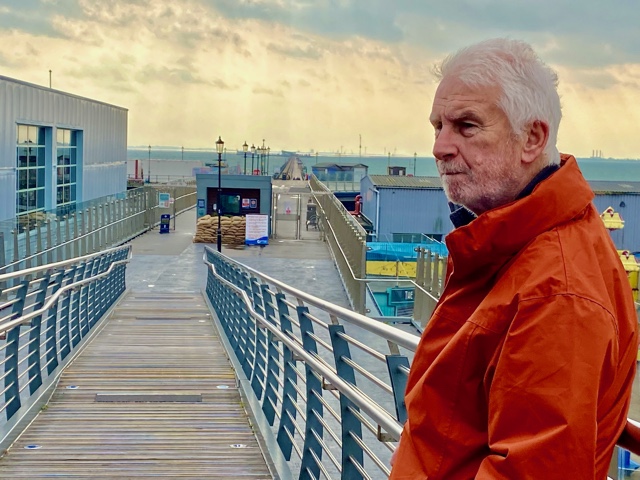
Red Sails
By Paula Spenceley
The quayside scene sparkles in the sunshine like a life-size snow globe of history, as though the stuff of centuries has been shaken and settled in random fashion at the bottom.
Medieval pubs sit happily alongside Victorian barges and the modern paraphernalia of bollards, paving and parked cars. Across the water, timeless marshes rest alongside new homes painted in pretty pastel colours.
Yet when I focus on the red sails against the blue sky, I realise that it is a sight long unchanged. Through world wars and happy times, from crowds at the Mud Race to the socially distanced days of Covid, those who have stood at the edge of Maldon’s Hythe and looked upwards have witnessed the very same sight.
It is only beneath these sails that the triumphs and tragedies of our human lives and times have unfolded.
I close my eyes and almost wish myself back to a different time – not long ago, but before the pandemic and to the carefree joy of lifting my grandson to show him these boats, watching chubby fingers point in delight at soaring gulls. And of the irreplaceable joy of hugging him, too.
I breathe in deeply, filling my senses with the salt-tinged seaside air, the melodic chimes on the breeze and the cool openness of the estuary in front of me.
It is the sound of small feet running that breaks the moment. I open my eyes and turn to greet him. That hug again. At last.
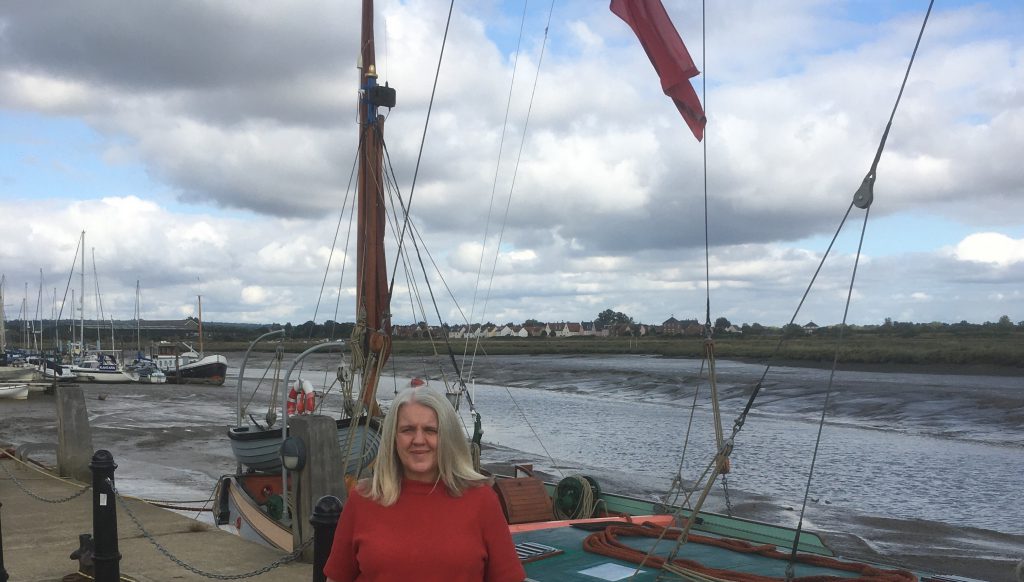
Precious Place
By Paula Spenceley
A sense of the familiar returned as she approached the chapel.
The sights and sounds of modern life were not missing as she’d walked along the grass track atop the seawall, between the wild marshes of the Dengie Peninsula and manicured fields. Distant chaff clouds puffed around a combine harvester. Enormous wind turbine blades propelled in constant motion. A jet traced its path in the vast sky.
Yet as she finished the walk the world seemed to return to a smaller scale. Poplar tree leaves whispered crisply as swallows darted, swooping low across her path. And the heavy weight of her mind, filled with a sense of responsibility in a world full of things she could never change, lifted.
The seawall path had brought her to a better understanding of her own vulnerability, the relentless march of the machinery of the human world on one side and the great openness, the uncompromising natural marshland on the other.
She had heard it said that this wilderness has a preciousness for which there are no words. Now she knew they were not needed. For here, as she walked on into the gentle calm of St Peter on the Wall, the sensation was as deep as the air on the seawall had been wide. Within the hewn stone and ancient brick of the chapel, time and space fell away.
Inside this simple place that had sheltered countless hearts down the centuries, she felt safe and free.
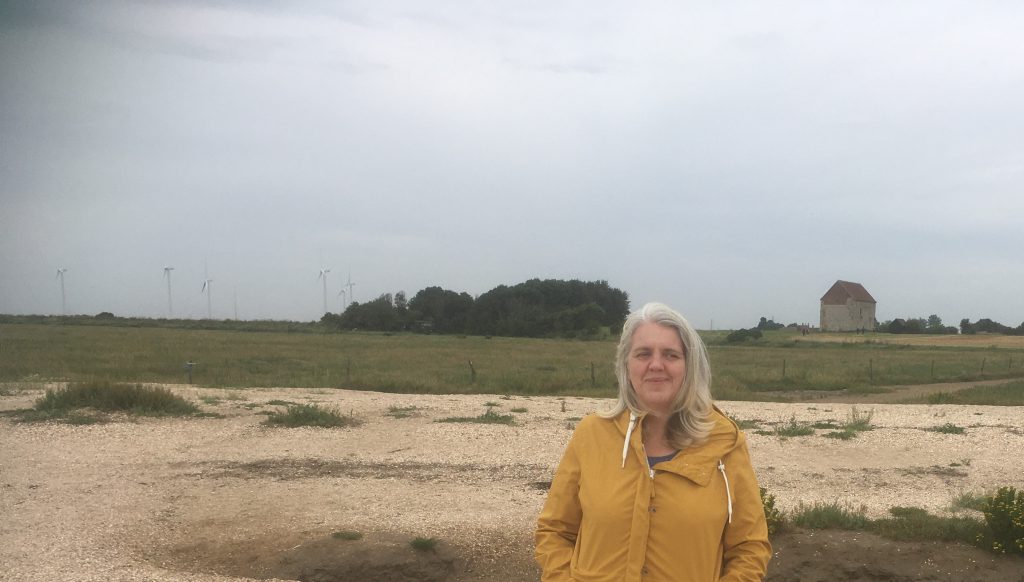
Foothold
By Polly Palmer
I unleash them at the summit; eight boys and two dogs. They scatter and I spread the picnic blanket. I take in the familiar scene; the marshes; the distant estuary; Leigh creeping up the shore, lit by late August sun. The dogs scope the castle mound, running along the walls, noses to the ground. On the seaward side, they dive down the landslip with tails aloft. Two centuries back, a young artist slithered on the scree trying to capture those fine drum towers. I open my empty sketchbook.
The boys tumble and shriek, attempting a human pyramid. Long ago, when the river still threaded through the marshes, a king raised a luxury retreat on this knoll. The royal barge bore his queen here for candlelit feasting.
Now driving wind and rain has wrecked those gorgeous halls; stone looted, tapestries burned, lead tracery smelted to free the glass. The artist painted the towers stark in winter snow. My drawing speaks of loss.
The sun casts long shadows across my paper. Another pyramid hovers unsteadily, teeters and falls. Cheers, screams, laughter, tears. The dogs bark and dance around. The boys cluster, excited for chocolate castle cake. But my towers will endure as boys become men and dogs fade into sky and sea.
As the sun sets, I strike a match. The candles quaver and gutter but keep burning. We sing. They lean and fall. We lift them, light them, sing again.
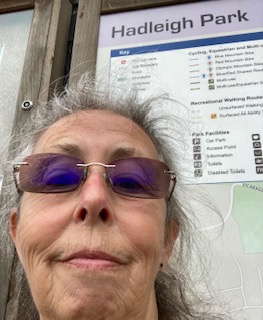
Doris
By R. Collins
On Fridays after work I used to stop by the Hythe on my way home, look at the barges and nip into The Queen’s Head for a pint. One drizzly November evening I stood and looked at a barge that I didn’t know, sitting in the mud as the tide was long gone. I must have been noticed as a voice came from the darkness.
“If you are that interested in her I expect that you would like to come aboard.”
I looked up and a figure was beckoning me so I climbed down and followed the old man into a cosy cabin lit by an oil lamp.
“I expect you would like a cup of tea,” he said, pouring me one straight from the kettle.
“Let me tell you about Doris,” so he did and at some length.
Eventually I said something about my dinner waiting for me, thanked him and made my way off the boat. By now it was pouring so I ducked into the pub.
“Bit late tonight?” asked the landlord as he poured me a pint.
“Yes, an old boy invited me aboard his barge and told me his life story.”
“Which barge is that then?”
“Doris”
“Doris, that’s not possible.”
“Why not?”
“She never came back from Dunkirk, that’s why not.”
Thinking to put him straight I turned to look out of the window, but all I saw was the imprint of a barge in the Maldon mud.
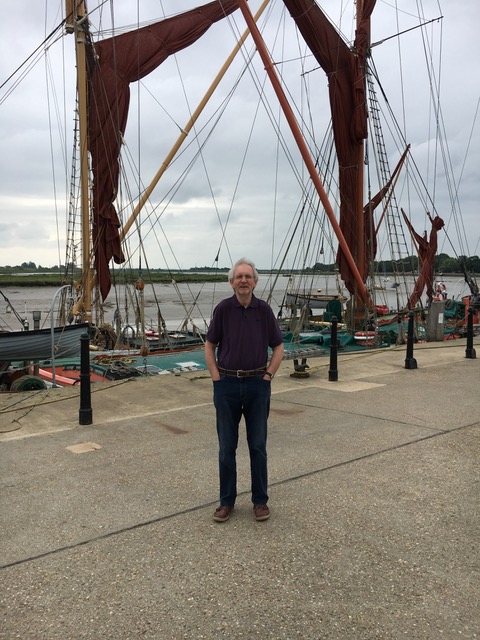
Peasants’ Revolt
By Ruth Gibson
Hatred is like ash. A blackness that infects us one by one. The dust touches every part of me, so that I cannot wash it away. I smell it in the air. I feel it under my skin. A hidden heat below my surface. I burn with this restlessness. I cannot sleep for it. The hatred fills my dreams. It fills my belly when I am hungry.
As we form our plan, I feel the excitement bubbling away inside of me. I taste the salt of anticipation on my lips.
Stars ignite the black sky. It is silent, except for our whispers. It hasn’t rained for weeks; it takes mere seconds to start the flame.
It licks at the timber, and dances its way upwards. Cracking. Nibbling. Glowing. The paint peels away. The smoke becomes thicker as the flames breed, spread quickly, and bite away at the building.
Cries from within. Shouting.
I know I should run, but I feel hypnotized. I feel the heat through my clothes. Warming. Soothing. Ash floats over my pale skin. Revenge is like ash. A blackness that engulfs the manor house.
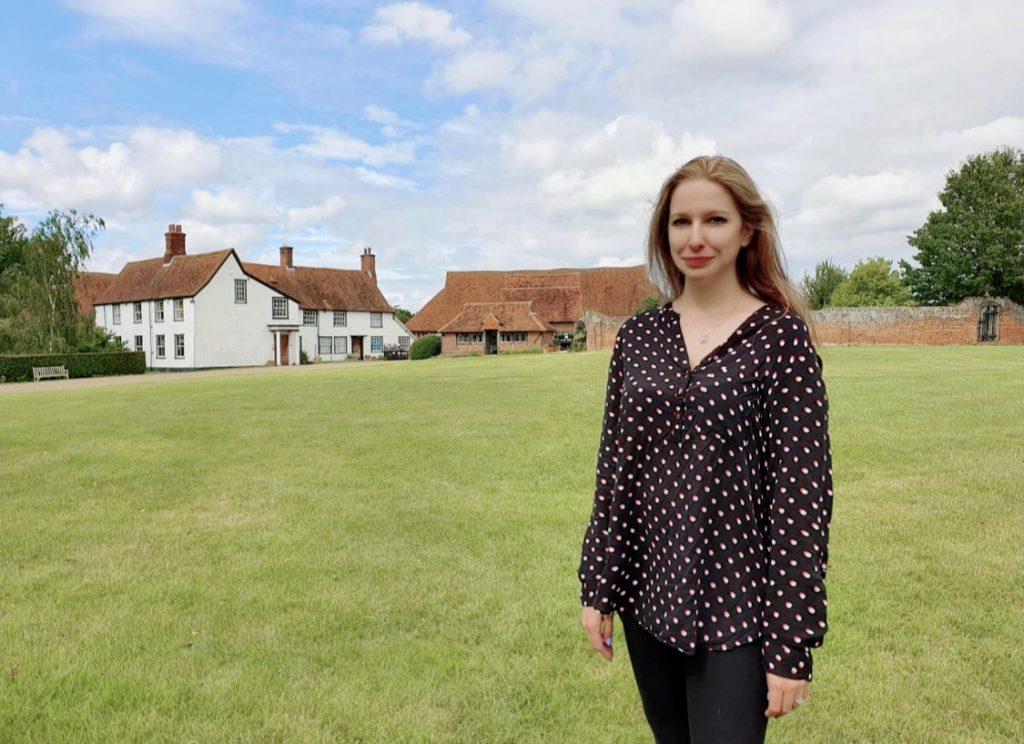
Spare a thought?
By Michelle Durant
The Red Admirals flutter silently over the purple clover and the tall grasses sway gently in the slightly salty air.
Behind the noise of the wood pigeon, blackbirds and impatient magpies; a calm rush of leafy trees being jostled.
Boats sit moored in the empty creeks and channels, unable to move as they wait for the tide.
A small plane disturbs the quiet ambience, its engines roaring, soaring through the dark rain clouds and imposing weather slowly drifting along the coastline.
Nobody here.
‘They’ walked away some time ago having enjoyed a moment of peace, eaten their picnic, remembered to call their friend who’d wished them a pleasant day.
It’s just a shame they forgot to take their shit with them.
And so, for the next person who decides to sit awhile;
Sorry about the bluebottles.

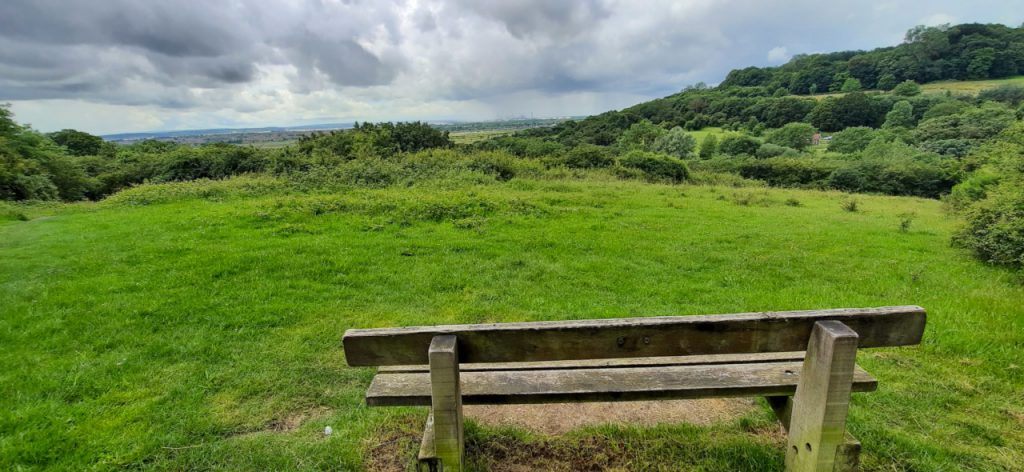
Bellarmine Jug
By Keith Duncan
The early morning light was dancing on the water of the estuary, and it suddenly switched off my dark brooding thoughts from the day before. The breeze in my face and the tang in my nostrils from salt and seaweed also refreshed me – life felt good again. I now knew that today would be one of those virtuous cycles when things got better and better and serendipity was on my side.
Following the winter storm, the estuary foreshore was flat apart from a sudden break in the surface that shouldn’t be there. My fingers pulled back the cold wet sand and a face on what seemed like an old drinking vessel stared back at me. It was as if to say, why are you disturbing me – you belong to another age.
Once I had pulled it away from the sand, I stared back at the jug not knowing what it was. I carried it with me as I wandered back along the foreshore. I met beachcombers on the way, and they swapped stories with me about their finds – this was not a solitary sojourn but a pleasantly unplanned and unscripted sociable gathering. A couple examined my jug – a 17th century drinking vessel from Germany they said, pointing out the potter’s thumb print on the inside.
This find will join other special items on a shelf at home. Each one has a story – a painting from a street artist, a coin from a late friend….
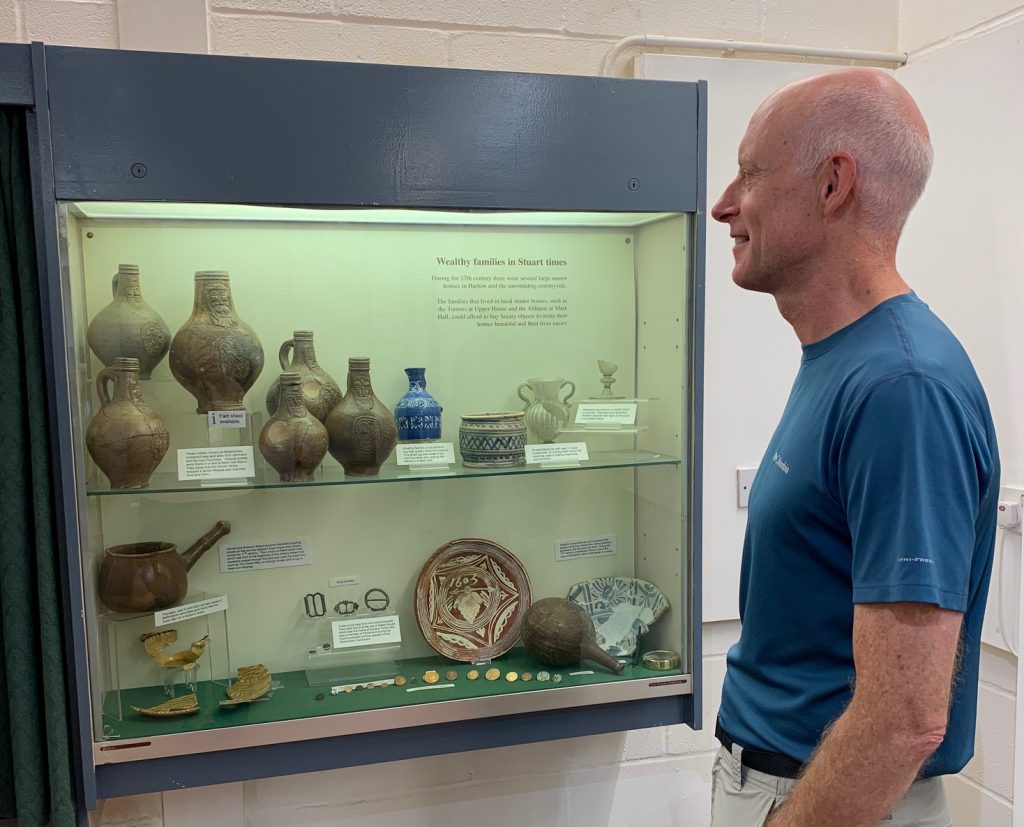
Cressing Temple
By Keith Duncan
800 years ago in this place, Templar warriors returned from the Holy Land, feeling the burden of trauma and battle. At that time, a return journey from foreign lands would have taken many months and replayed flashbacks of the pain of the battle over and over again – weighing heavy on their minds.
800 years on I cocoon myself in this secret walled garden, no longer trapped by the restrictions of the recent pandemic. Leaning back on my bench, I soak up the sunshine, the smell of lavender and the bird song which brings me the first feeling of peace and calm in a very long time. My mind wanders and I muse on whether the Knights Templar managed to eventually find a peace from their storms.
The old timbers in these barns will have witnessed many plagues and pandemics but have survived the centuries as storms always pass. I won’t be the only one to have found peace here – peace will have been brought to many.
I ease myself from my seat, reflecting on how places like this are so special. In a world of every competing pressure for time and money we could give up on places like this, but a world without history, literature and art would be a sorry place to be – tediously functional, clinical, and lacking interest and aliveness. I hope these barns continue for another 800 years and bring that peace and curiosity to many others.
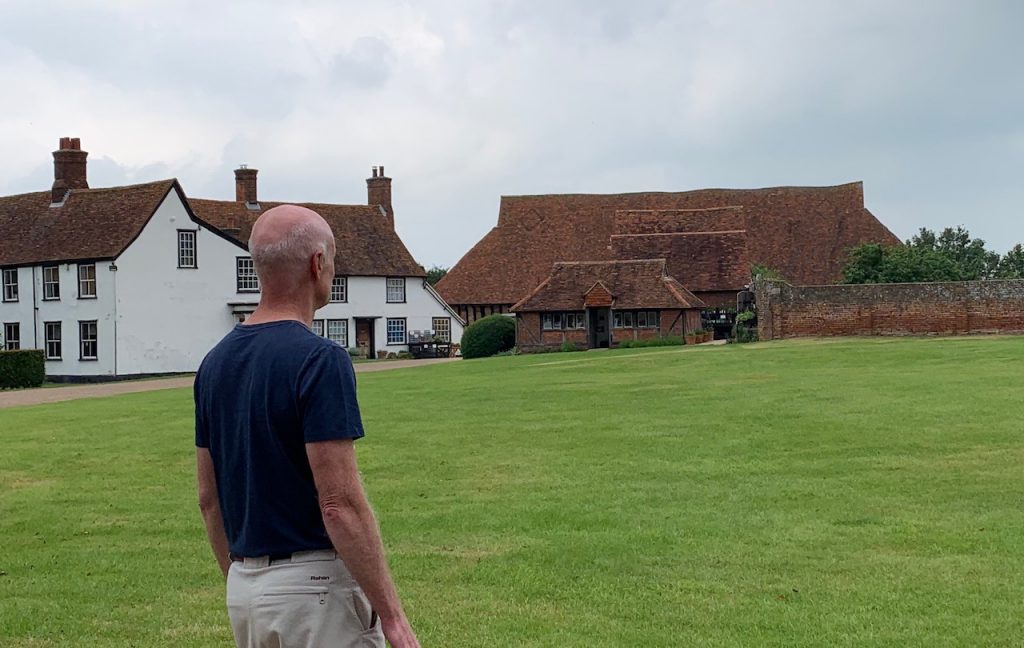
Flowing with Milk and Ice-cream
By Lynden Wade
We don’t mind the heat that presses on our flanks. We don’t mind the flies that whine in our ears. It’s the humans. Big humans that slump in our shade. Small humans on speedy shiny things that dash at us and swerve at the last moment. We have work to do: on the hillside above the marshes we graze on yellow-bright flowers and tender grass to make milk. How can we work with these obstructions?
We put our heads together, chew the cud, come up with a plan. The grass heads nod in the breeze: yes, a good plan.
They are surprisingly easy to herd, these humans. We ease them into a huddle, lower our heads, stare them out. They shuffle away, whimpering, jump into their big shiny boxes and speed away with clouds of noxious smoke.
Their cowshed is ours now. We file in, curious.
A line of boxes, filled with a cold, bright substance, glowing like buttercups or glistening like our own flanks. It’s the food the humans carry round with them, licking it with their pathetic little tongues. The scent of milk and cream! Is this where all our hard work has gone, to feed the lazy humans? We taste each shade with tip of tongue. Only one is even close to the smell of grass — minty, eye-watering. The rest are rich as butter. We lick up one, then another, reaping at last the rewards of our labours.
He is barely forty inches high
By Tricia Waller
The morning sun sparkles in the powder blue sky as little horse rolls on to his side,then knees and finally stands shakily stretching and drinking n this momentous new day.
For he is to join his brothers as part of the team who will pull Marcus Verecundus’ chariot at the Circus in Camulodunum.
As they approach the race track the noise of the assembling crowd terrifies him. He is barely forty inches high and knows that he is here just to make up the number as his big brother is lead horse at front left but little horse’s chest swells with pride as they are led to the carceres (starting gate) and attached to their chariot. The charioteer climbs aboard the mappa (cloth) is waved, the gates spring open and they’re off thundering anticlockwise around the track sending clouds of dust and dirt in to the air.
The whip tears into his back urging him to run faster; its as if he is flying! The crowd cheer as they charge around the spina(barrier) and then a searing pain shoots through his hoof, he tries to run on but suddenly his little leg gives way, he falls to the ground and the chariot, horses and charioteer get trampled on in the crush of the other chariots racing for victory!
The girl in the visitor centre peers at the tiny hoof ridden with arthritis as tears stream down her cheeks
Poor little horse she whispers.
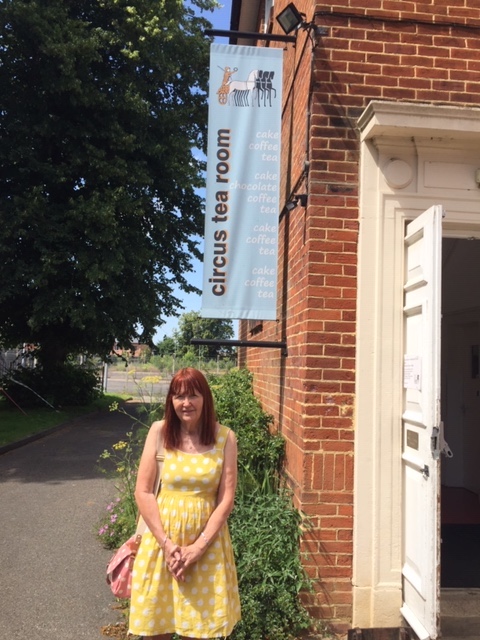
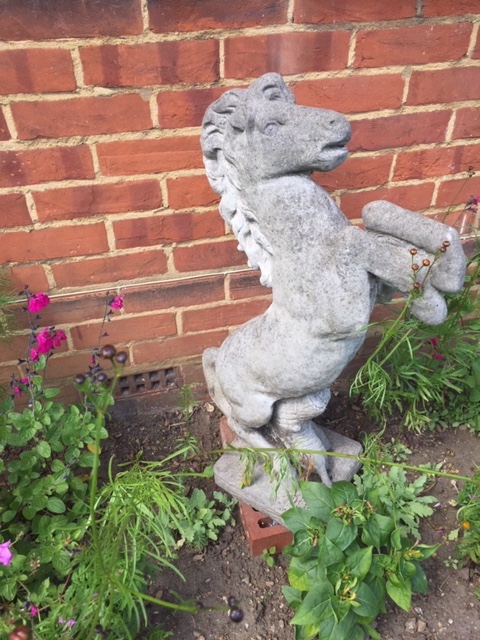
REDOUBT FORT
By Katie Rivers MacDonald
Sitting here surrounded by damp cold darkness with little light breaking through the gloom transported to a time that seems long ago but is it really that long ago I ask myself.
I look around the inner space of the Redoubt Fort, in Harwich Essex, and find that the rooms are now renamed to something more contemporary. Why, why do they feel the need to change and then put underneath what the rooms were previously?
The cells for example so much more evocative if the name were kept as cells! These for me were the most interesting and took my mind to unimaginable thoughts. How did they survive, albeit they had obviously committed some crime or misdemeanour? It was damp, dark and cold – just a concrete block to sleep on. Obviously no windows and just a hatch for putting their meagre rations through.
I jumped suddenly aware that someone was watching me from inside the cell my heart was beating so fast and loud I thought everybody could hear. Problem is who was the everybody? I was the only one there. In seconds, but felt so much longer, I turn my eyes to the inner corner of the cell and there I was faced with a dummy! Not scary at all-or so I thought I looked closer and began to think if this were in real time what would be his thoughts ?
There was a plate of food in front of him and a tin cup but my focus was him I felt his sorrow, his pain, his despair. I began to think what had he done. It seemed incongruous that he was there in full uniform including a cap! Would that really have been the case? If I were cold and uncomfortable just walking around how much worse it must have been for him? There was no respite to his sorrow and fear. I was overcome with such sadness, I could really have known this man, this lone person with nothing but time, fear, damp and loneliness. Ultimately, he was someone’s son, perhaps his own children or was he an uncle a brother did he have a special young lady back home. I couldn’t help but again wonder what was his crime?
There was enough pain and heartache in this place was there really a need to be more. He sat alone cold and frightened wondered if he felt guilt (or thanks) that he was in this cell. I can’t begin to imagine what he was thinking what thoughts ran through his mind. All around him there was the sound of guns, chaos,noise, screams and shouts. The sounds of unimaginable pain as they lay with no hope of help and death perhaps their only hope of escape.
Upon reflection I was left thinking about the war, what it really means not just then, but now, the world is still blighted by war and terrorism. It would appear we have not learnt too much from our predecessors. But what I have learnt from my fascinating look around the Redoubt Fort is that I was focused on a very small part of the overall picture. It showed the bravery of those men and women who fought for their country. I wonder if the call to Arms would be so equally sought today? I found myself thinking if the youngsters of today would be able to step forward for their country or would the fear not be what lay ahead but thinking about what they were going to lose. Their so-called identity with a gaming community online this unknown world of ‘friends’ They seek battles on screen but with little or no thought to what it really means. Not just being surrounded by the horror of death and destruction but faced with their own mortality. Would this ongoing battle on the screen feel so great in real life with bombs going off around them, with the realisation that they were not invincible would they be left like the man in the cell all in their own private prison.
So today would they step forward as eagerly and dutifully as their forebears. Sadly I think not !
